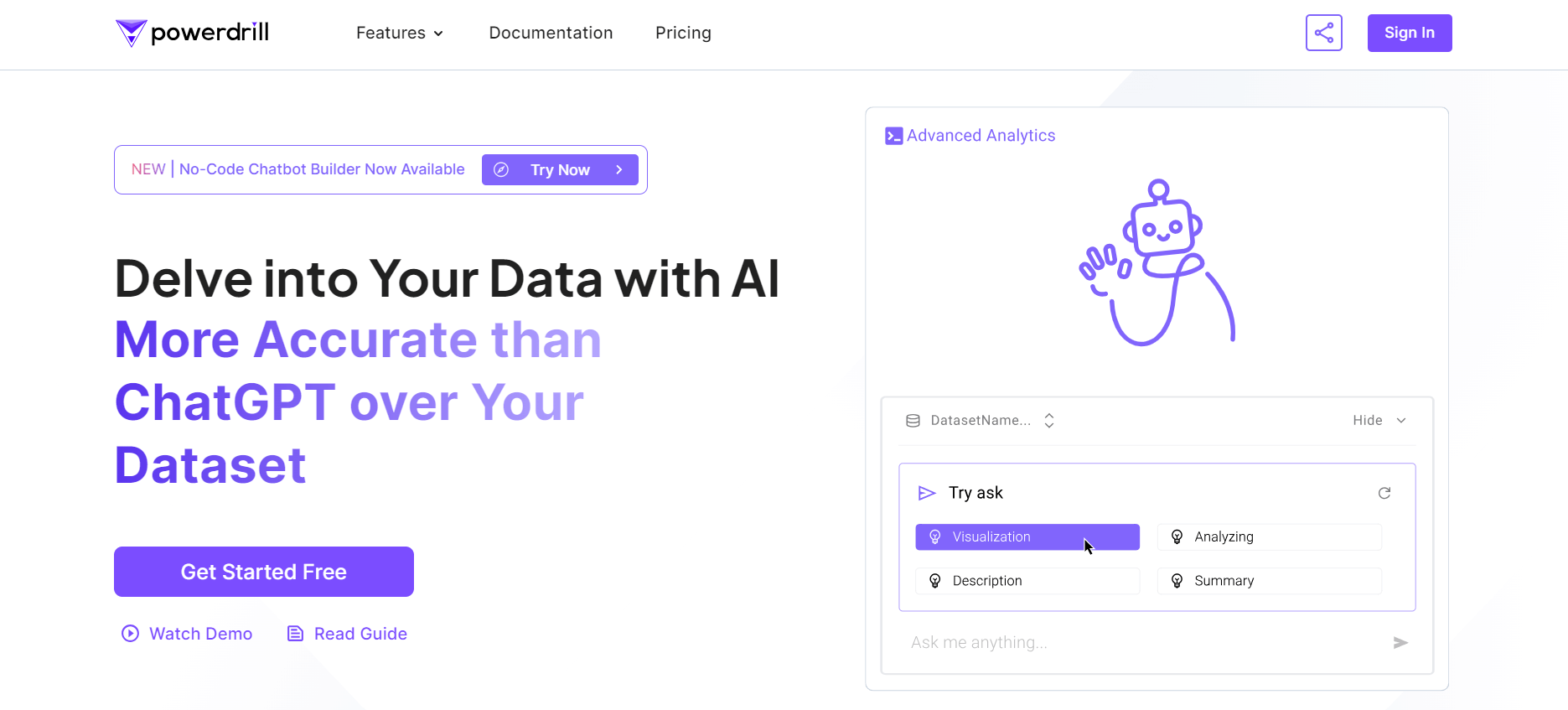What is Powerdrill?
Powerdrill AI is an AI-powered tool that connects data with AI, allowing users to develop AI-powered knowledge bases without coding knowledge. It enables building LLM (Large Language Models)--powered knowledge bases over private datasets, resulting in more accurate replies to inquiries based on them than ChatGPT. Powerdrill AI distinguishes itself by allowing customers to develop strong AI-driven knowledge bases using their data, regardless of size or format. This novel technique allows for easy integration of datasets with OpenAI's LLM for intelligent Question and Answer (Q&A) systems and interaction within the OpenAI ecosystem, providing a no-code, one-stop solution.
Key Features
Powerdrill key features are:
- No-code AI knowledge base creation: Create AI-powered knowledge bases from your datasets using an easy-to-use interface.
- Generative AI: To extract insights from your data, use skills such as text creation, translation, and summarization.
- Integration with Private Datasets: It allows users to incorporate their datasets, regardless of size or type. This enables the development of individualized, highly accurate AI models based on particular inputs.
- Seamless Integration within the OpenAI Ecosystem: Powerdrill AI makes it easier to integrate users' datasets with OpenAI's technology, enabling the development of intelligent Q&A systems and interactions that take full use of OpenAI's services.
- AI-driven chatbot: Develop chatbots using your data to provide tailored and useful experiences.
Pricing
Powerdrill offers both free and paid plans:
Free Plan:
- Offers 10 MB total dataset size
- 5 user-defined Apps
- 10 chat shares per App
Plus Plan:
- $9.90 per month
- Offers 50 MB total dataset size
- 30 user-defined Apps
- 60 chat shares per App
Powerdrill Video
Conclusion
Powerdrill AI Tool emerges as a ground-breaking method for using AI to develop intelligent and accessible knowledge bases. It democratizes AI by allowing individuals without technological competence to utilize their own datasets to create LLM-powered knowledge stores.
Also Check:











 Verified
Verified





